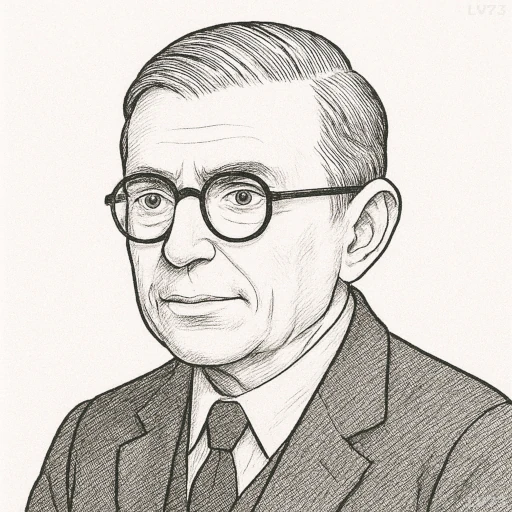“Being is. Being is in-itself. Being is what it is.”

- June 21, 1905 – April 15, 1980
- Born in France
- Philosopher, novelist, playwright
table of contents
Quote
“Being is. Being is in-itself. Being is what it is.”
Explanation
In this quote, Sartre is expressing a fundamental idea in his existential philosophy, specifically regarding the nature of being and existence. “Being is” is an assertion of existence itself—the simple, undeniable fact that being exists, and that existence is the starting point for everything. Sartre’s claim that “Being is in-itself” refers to the self-sufficiency and objectivity of existence. It exists without reference to anything else, independent of human thought or categorization. In-itself here represents the state of being that is just what it is, without purpose or meaning beyond its own existence.
The phrase “Being is what it is” reinforces this idea of pure existence, where being does not need to explain itself, nor does it have a predefined essence or purpose. It simply exists. Sartre contrasts this concept of “in-itself” being with the human condition, where humans are not just what they are (they exist), but are also what they make of themselves (they define their essence through actions and choices). This contrasts with the in-itself, which is an unconscious, unchanging existence. In Sartre’s view, humans are defined by their freedom and ability to act, which distinguishes them from mere objects or beings that simply are without choice.
In modern contexts, this quote resonates with philosophical debates about ontology (the study of being) and existentialism. Sartre’s statement touches on the nature of existence and the difference between mere being (as in an object or a stone) and human existence, which is characterized by consciousness and the freedom to create meaning. For individuals today, this quote invites reflection on the nature of existence, the freedom to choose, and the difference between living passively (“just being”) versus living with purpose and intent. Sartre’s words remind us that while existence itself is a given, how we live and what we make of our lives is entirely up to us.
Would you like to share your impressions or related stories about this quote in the comments section?
